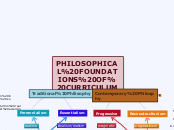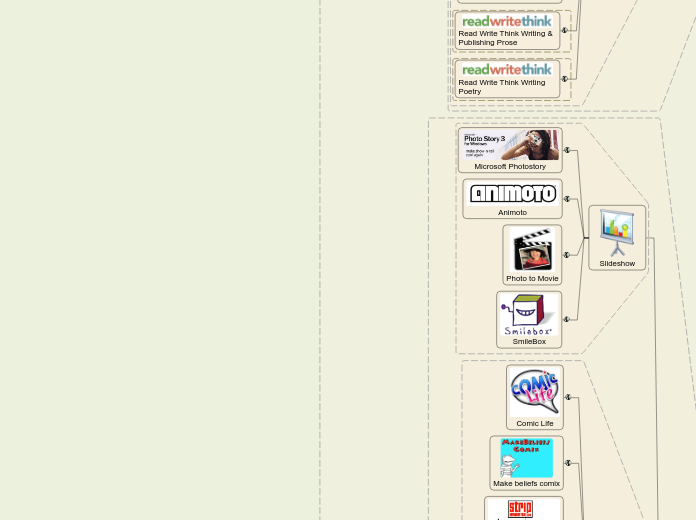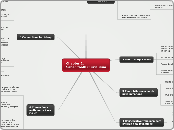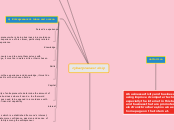References:
Al Mousa, N. (2013). An examination of cad use in two interior design programs from the perspective of curriculum and instructors, pp.21-37 (Master’s Thesis).
Eisner, E., & Vallance, E. (1974). Five conceptions of curriculum: Their roots and implications for curriculum planning. In E. Eisner &E. Vallance (eds.), Conflicting Conceptions of Curriculum (p. 1-18). Berkeley, CA: McCuthcan.
Ornstein, A.C. (1990-1991). Philisophy as a basis for curriculum decisions. High School Journal, 74 (2), pp. 102-109.
Ornstein, A.C., & Hunkins, F.P. (2013). Curriculum Design. In Curriculum: Foundations, Principles, and Issues (p. 149-173). Upper Saddle River, NJ: Pearson.
Sowell, E. (2005). Sections from Chapter 3, 4, 5. In Curriculum: An Integrative Introduction (3rd ed.). (p52-61, 81-85, 103-106). Upper Saddle River, NJ: Pearson.
Vallance, E. (2001). A Second Look at Conflicting Conceptions of Curriculum. Theory Into Practise, 24(1), 24-30
Other curriculum designs (Sowell, 2005)
Curriculum designs which defy the main classifications.
Core Curriciulum
- combines subject matter with content based on societal and personal needs
- students learn core material but also learn secondary material based on aptitude, interests, and capacities
- strong problem solving element
School-to-work Curriculum
- program usually for high school students
- students learn from people in the workforce
- acquire skills and formulate career goals
Technology as Curriculum
- uses subject matter as a source of content
- organizes knowledge so students can learn from it
- behaviourally stated objectives
- sequenced set of activities
THEORISTS
Curricular theorist envisioned different conceptions of curriculum. There is some overlapping between the conceptions.
Vallance
Create intellectuals with a broad scope of knowledge
- as technology has improved this may be the broadest of all the conceptions
- can be applied to any content and adapted to any purpose
Process for the greatest benefit to the most students
Social reconstruction
- unchanged from Eisner and Vallance
Improve society
Personal success and commitment
- education is a means to an immediate practical end
- personal success is the desired outcome
Individual needs
Sowell
Cumulative tradition of organized knowledge
- "cultivate cognitive achievement and the intellect by helping students understand knowledge"
Traditional knowledge based on subjects
Technology
- make learning systematic and efficient
- focus on the how over the what
Learners systematic and efficient through process
Social-relevance reconstruction
- provide learners the ability to adjust to the changing world
Needs of society and culture
Self-Actualization
- let learners discover things for themselves
- student focusses
Needs of the individual
Pratt
Cultural Transmission
- focusses exclusively on cognition
- "repair deficits or gaps in people's understanding"
Traditional academic knowledge
Social Tranformation
- give students freedom and the ability to choose
- similar to social reconstruction curriculum
Political and social change
Individual fulliment
- similar to self-actualization
- human relationships are important to grow personally
Learning through personal experience
McNeil
Academic
- learners question, hypothesize, synthesize, and draw conclusions
- prepare students for life after education
Developing the rational mind
Systemic or technology
- outcome based education
- how to teach more important than the content
Process is more important
Social Reconstruction
- develop learners' social needs over individual needs
- values of the many over the one
- find solutions to societal problems
Social change
Humanistic
- develop good character and good work quality
- teachers build relationships with students
- process of learning is valued over the output
Individualism
Eisner and Vallance
Development of Cognitive Process
- refinement of intellectual skills
- give the learner intellectual autonomy to be able to select and interpret real world situations
- content less important than the how
Self-actualization
- content is valued
- schooling should be a large part of student's life using curriculum
- Vallance dropped this and replaced it with personal success and personal commitment
Discover things on their own
Academic rationalism
- most traditional
- give students the tools to function in Western traditions
- classic disciplines taught
- preferred by most educators
Most traditional. Classic Disciplines
Curriculum of Technology
- uses technology to communicate knowledge
- efficient, precise logical, to the point
Focuses on process
Social reconstructivism
- focusses on social change and social values
- give learners the tools to flourish in an ever changing world
- two different branches, present and future
Societal needs over individual needs
Marsh and Willis
Prescriptive
- curriculum is pre-planned
- 4 different conceptions: social needs-child-centered, social-efficiency, social needs re-constructionist, philosophical-academic rational
Focused on end, objectives, and outcomes
Descriptive/Critical Exploratory
- learn to make good choices
- practical reasoning valued
Look at curriculum in real time and adjust accordingly
Critical explanatory
- two approaches, one, connection between school and society, two, personal experience
CONCEPTIONS OF CURRICULUM
What should be taught? To whom? When and how?
TECHNOLOGY
(Al-Mousa, 2013)
Cognitive
Processes
Systemic
SOCIETY
(Al-Mousa, 2013)
Social
Reconstructionist-
Relevance
INDIVIDUAL
(Al-Mousa, 2013)
Humanist
Self-actualization
Learner-centered
ACADEMIA
(Al-Mousa, 2013)
Academic
Rationalist
Traditionalist
CURRICULUM DESIGN
Design Dimension Considerations
Balance
Integration
Articulation
Continuity
Sequence
Scope
Shadow Curricula
Null Curriculum
Hidden Curriculum
Operational Curriculum
Representative
Curriculum
Designs
Problem-Centred Designs (Ornstein & Hunkins, 2013);
Society-Culture-Based Designs (Sowell, 2005)
- needs of society and culture
- focusses on the learning process
Pros- integration of different subject matter, relevance to students and society, meaningful and motivating to students
Cons- content not well organized, doesn't provide adequate exposure to cultural heritage
Reconstructionist Design
Life Situations Design
Learner-Centred Designs (Ornstein & Hunkins, 2013);
Learner-Based Designs (Sowell, 2005)
- students help select and organize the purposes for learning
- subject areas become a means by which students pursue problems or topics
- typically used for early childhood education
Pros- students perceive learning as relevant and meaningful, actively involved in learning,
Cons- do not learn a common body of knowledge, may not learn cultural heritage and achieve social goals
Humanist Design
Romantic (Radical) Design
Experience-Centred Design
Child-Centred Design
Subject-Centred Designs (Ornstein & Hunkins, 2013);
Subject Matter Designs (Sowell, 2005)
- oldest and best known to teachers and lay people
- develop interests and competencies
- contribute to literacy
- curriculum is usually developed using outcome approach
Pro: verbal activities, socialization, easy to deliver
Con: no program individualization, emphasis not on learner, little consideration of content, promotes scholarly elite, divorcing knowledge from the student's experience, student passivity
Process Designs
Correlation Design
Broad-Fields Design
Discipline Design
Subject Design
Contemporary Philosphy
- present and future
- events changeable and relative
- problem solving
- students' interest and needs valued
- equal value given to each subject
- individual expression and freedom
Reconstructionism
pragmaticism
Improved society
Progressive
pragmatic
Democratic social living
Traditional Philisophy
- focus on the past
- glorifies cultural heritage
- emphasis on subject matter
- knowledge is prioritized
- cognitive development
- controlled and restrained for societal indoctrination
Essentialism
idealism/realism
Intellectual growth. 3 R's
Perrennialism
realism
Educate rational person
PHILOSOPHICAL FOUNDATIONS OF CURRICULUM









